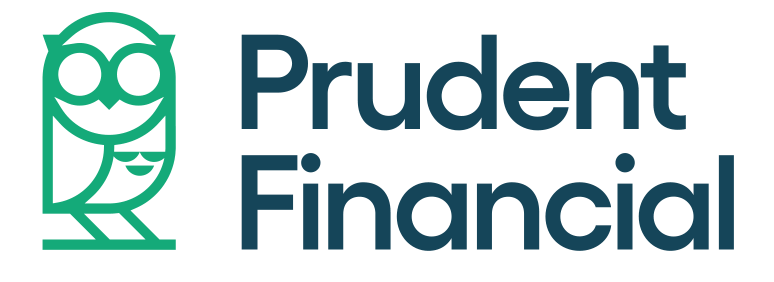
In Canada, we’re consistently being exposed to negative news reports and many people’s lives have been dramatically impacted by Covid-19. The pandemic has been particularly damaging for individuals who suffer from anxiety, addiction or have other mental illnesses. Many are feeling lonely because of social distancing regulations, increased stress from added care giving responsibilities and concerns related to financial effects of pandemic.
Chronic stress and anxiety can also be associated with lack of engagement at work and distraction. It can also lead to employees being unproductive and higher levels of absenteeism. Additionally, a significant proportion of people who had at least one family member with mental health problems reported that their finances, emotions, time and daily lives were affected. https://www150.statcan.gc.ca/n1/pub/82-624-x/2015001/article/14214-eng.htm
Mental health doesn’t just impact an individual but has a domino effect where it impacts everyone in that person’s social circle.
A recent Statistics Canada survey revealed that Canadians who have been financially impacted by Covid-19 have become significantly more anxious. 43% of participants who reported the pandemic has hindered their ability to meet financial obligations reported feeling moderately to severely “anxious”. Source: https://www150.statcan.gc.ca/n1/daily-quotidien/200527/dq200527b-eng.htm Below are some other statistics that illustrate the vast impact the Covid-19 pandemic has had on the economy and on the mental and physical well-being of Canadians:
- Youth (aged 15-24) were the most likely to report a negative impact on their mental health since physical distancing began. Nearly two-thirds (64%) of youth reported a negative impact on their mental health, while about one-third (35%) of those aged 65 and older reported a negative impact on their mental health.
- Additionally, 52% of participants in Stats Can study indicated that their mental health was “somewhat worse” or “much worse”.
- More than half of young Canadians surveyed (55%) aged 18-34 by Sun life report having to make changes to financial goals and 29 percent stated they had to dip into savings during Covid-19. Additionally, 45% of Canadians feel less financially secure since Covid-19 began.
- 20 percent of the general population expect to be late paying their mortgage or rent as a result of Covid-19, compared to 27 per cent for individuals with disabilities:
We can control how we react to financial stressors
Despite the fact that we cannot control other people and scenarios that are much larger than us, we can control how we react to financial stressors and how we let it affect our lives and relationships. Being optimistic about future outcomes and adopting healthy habits is key to ensuring a healthy mindset, especially during these crazy and unpredictable times. Below are four potential ways improve mental and financial well-being during this unprecedented time:
- Reduce screen time and increase outdoor exercise
According to Statistics Canada “While physical distancing measures are necessary to reduce virus transmission, prolonged restrictions can lead to decreased outdoor exercise and poorer self-perceived mental health”. Additionally, roughly two-thirds of Canadians increased their screen time during widespread shutdowns and introduction of social distancing measures. Canadian adults who were exercising outdoors and limiting screen time during the early stages of the Covid-19 pandemic were more likely to report positive mental and general health.
Unfortunately, the most recent statistics tell us that pre COVID-19 only 1 in 5 Canadian adults are meeting the current recommended level of physical activity (150 minutes per week) and exercise levels tend to get shorter as we age. Certainly, the closures and restrictions of fitness centres and group workout classes have made some people less likely to exercise. Lack of exercise and excessive down time is associated with an increased risk of depression and poor mental and physical health. Finally, physical activity is particularly useful as people go through the stresses of pandemic. Working out and even going for walks helps to build up a body’s immune system.
- Reprioritize and reduce unnecessary expenses –The less you spend on non-essentials, the more money you are left with every month to either save for future or pay down debt. The first step involves having a comprehensive understanding of all your expenses and determining how much you spend on non-discretionary expenses. Non-discretionary expenses include mortgage or rent, food, utilities, transportation and other such costs.
Many companies are not accepting cash and instead are only taking payments through apps or other cashless methods. It’s now more important than ever to keep up with all credit card and other online transactions. One suggestion to reduce expenses could be to examine what triggers your spending and remove that trigger. For instance, unsubscribe to receive emails from non-essential stores you shop at and avoid splurging when products are offered at a discount.
- Snowball Method
Many people get overwhelmed when they have a large amount of debt and feel that their financial situation is not improving. The Snowball Method involves tackling your smaller debts first so that you have “quick wins” and begin to see light at the end of the tunnel. This method may improve your financial outlook and reduce anxiety over what you owe to creditors. However, when it comes to credit cards this isn’t the best way to deal with them due to the high interest fees in comparison to other forms of credit. It wouldn’t be wise to pay off a $2000 bank loan with 4% interest before a $4,000 visa balance with 18% interest.
- Mortgage or Home Equity Loan
One solution to reduce financial anxiety is to consolidate unsecured debt (i.e. high interest credit card or auto loan debt) into one monthly payment at the lowest interest rate possible. The main advantage is that you only have one monthly payment instead of multiple monthly payments. Since you’re using your house as collateral you’ll likely pay significantly less in total interest compared to other debts like credit cards. The obvious downside is that if you are delinquent on payments the lender can eventually seize your property.
Home Equity Loans
A Home Equity Loan (also known as Second Mortgage) is basically another loan separate from your original mortgage with a lien on property in second position. The downside to a second mortgage is that you’ll have two monthly mortgage payments. It can be a challenge to keep up with payments if you’re struggling financialyl and living paycheck to paycheck. It’s also critical you avoid accumulating more debt that you can pay back, particularly high interest debt. This is because you’ll have to pay the new debt back with interest in addition to making two monthly mortgage payments. The bottom-line is that if you’re able to consolidate your debt at a lower interest rate and owe to fewer creditors it should help reduce financial stress.
Through Prudent Mortgage you can investigate the option of borrowing using your home as collateral so you can consolidate debts, especially those that are charging you a high monthly interest rate.
We offer equity loans in Toronto and the GTA, meaning you can borrow with your car, home, or other assets regardless of your credit score. We lend to people with bad credit, self-employed, and even people in an undischarged bankruptcy or consumer proposal.
You can learn more about our services and eligibility requirements at www.prudentfinancial.net or by calling 1-888-852-7647.
Your mental health is key, especially when going through traumatic events like a pandemic.
Photo by Jude Beck | Unsplash
